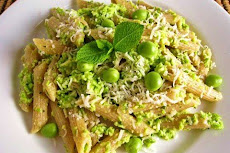
By Karen Leland, The Huffington Post
Posted: September 16, 2009 08:30 AM
I once took my dog Penny to see a canine behavior specialist. The probelm was that Penny, having been adopted from a shelter, had spent the first part of her life suffering at the hands of neglected owners. At the ripe old age of 18 months, she had survived her scared puppy hood, but retained a few bad habits.
During the interview the dog doctor did a whole lot of things involving a liver-snack treat. At one point he looked up at my husband Jon and I and pronounced "you're in luck, this dog is treat motivated." Jon turned to me and without missing a beat said "just like us honey."
That was 15 years ago. Penny's mellower - having had time to reflect on her early doghood experiences - but she still stands in rapt attention whenever the chance for food presents itself. As for Jon and I we have been forced to recon with the very real and sad fact that we can no longer get away with:
- Regular midnight snacks
- Eating ice cream for desert every day
- Having seconds at the 'all you can eat' buffet
- Too much wheat, dairy, sugar, wine or chocolate.
Getting old is a bitch. But the upside of our downward intestinal fortitude is that it has required us to become more mindful eaters. So when I ran across the work of Dr. Susan Albers of www.eatingmindfully.com, I was intrigued. Here's her take on the practice of mindful eating.
What is mindful eating?
Mindful eating is a not a diet.There are no menus or recipes. It is simply about being more aware of what you eat. Eating is such a routine behavior that you can eat an entire plate of food and not taste one bite. You can also fall into repetitive mindless eating habits (eating a snack at the same time each day, stress eating at work etc). When you are eating mindfully, you enjoy your food, savor it and also feel more in control. It's the polar opposite of binging.
Why do you think we don't eat mindfully?
There are many reasons for mindless eating. In part, we use food to soothe and calm ourselves. The busier you are the easier it is to shift into autopilot and become unaware of what you are doing. Dieting has warped our perception of how to eat in a balanced way.
Do you think we eat less mindfully today, than a decade ago? Why or why not?
With portion sizes getting bigger, it is easy to mindlessly eat and not even realize it. Also, the media continues to pushing the therapeutic value of food. Therefore, making it more likely to use food as a way to calm and soothe rather than turning to non-caloric ways of relaxing. The fast pace of the world also makes it difficult to slow down, and dedicate time to eating. We eat in the car and on the run, which encourages mindless eating.
What impact does eating mindfully have on a balanced life?
Mindful eating is important because it is a long-term approach to eating (versus dieting which is short term). Mindful eating is realistic. It doesn't cut out any foods from your diet.
When you slow down, you think more clearly. You are less reactive. Being mindful helps you be more aware of how you unconsciously and consciously react to food and find new ways to deal with the situation without leaning on eating.
Overall, your weight impacts your mental and physical health. It's a chicken and egg effect. Unhealthy eating habits lead you to feel depressed and when you are depressed you don't eat well. People who manage their diet well are physically and mentally healthier and more balanced.
Can you give me four ways that we can eat more mindfully?
1. Mindfully Store Food: If you can see it, you are more likely to want to eat it, even if you aren't hungry. You may not have been craving donuts until you pass them in the lunchroom. Then, you can't get them off your mind. Strategically placing food falls in line with the "out of sight, out of mind" principle. The opposite is true as well. You are more likely to eat healthy foods if they are placed in a convenient location. Keep a fruit bowl on the kitchen counter. Thrown a healthy snack into your purse.
2. Avoid Multitasking: When you eat, just eat. It's tempting to eat while you work, talk on the phone or answer an e-mail. But according to research, this can actually interfere with mindful eating, or eating enough to satisfy your hunger without going overboard. So even if it is a few moments, put down whatever you are doing and focus on your snack.
3. TV-Less Dinners: It's tempting to turn on the TV while you eat. But, studies show that TV watching leads to mindless eating. TV commercials stimulate your hunger. Also, your attention is focused on the TV show and not on your food.
4. Sit Down: It sounds simple enough but too often we are eating standing over a counter, eating a bagel while we walk or munching as we make dinner. You will pay much more attention to how much food you eat when you are focused on it. Commit to eating only while you are sitting.









